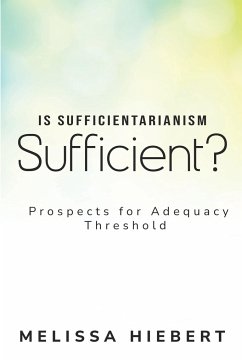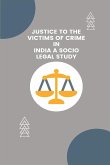The central doctrine of sufficientarianism is that there is a certain threshold below which people are said to be objectively "badly-off," and that providing benefits to people who fall into this category has a special moral urgency. A big part of sufficientarianism's success as a theory, then, relies on the ability to define the threshold in a manner that is non-arbitrary and that justifies a large difference in moral consideration between people who are on opposite sides of the threshold. This thesis examines some attempts to define such a threshold, and eventually concludes that no such threshold is available to us. However, while sufficientarianism may not work as a theory, sufficiency thresholds remain useful due to their practical ability to give useful instruction to policy makers in order to assist in resource distribution and the promotion of social justice.







